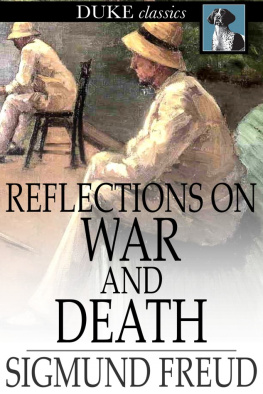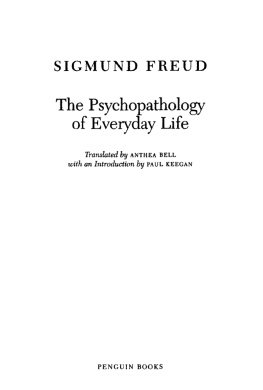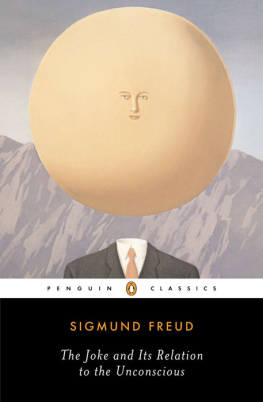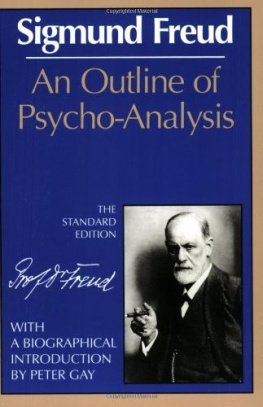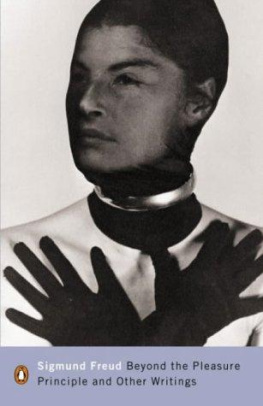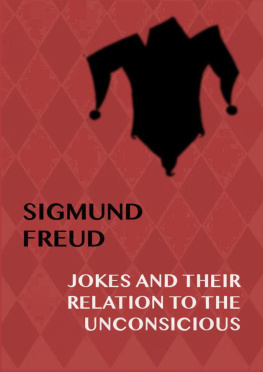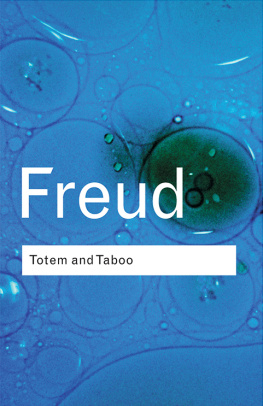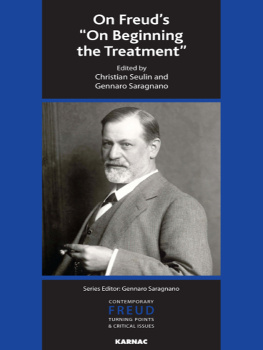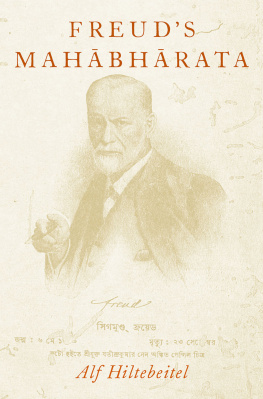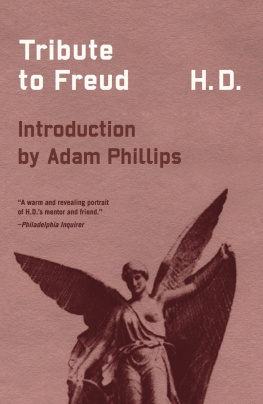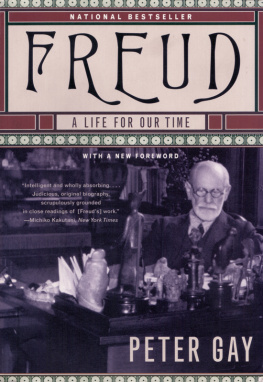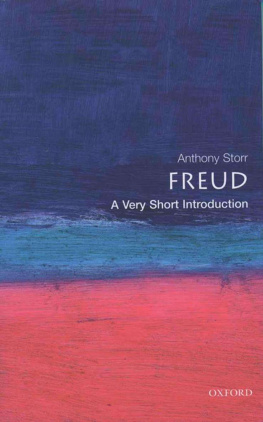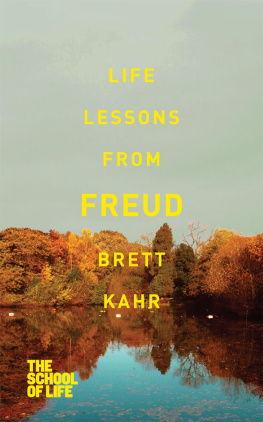Sigmund Freud - Reflections on war and death.
Here you can read online Sigmund Freud - Reflections on war and death. full text of the book (entire story) in english for free. Download pdf and epub, get meaning, cover and reviews about this ebook. year: 2014, genre: Science. Description of the work, (preface) as well as reviews are available. Best literature library LitArk.com created for fans of good reading and offers a wide selection of genres:
Romance novel
Science fiction
Adventure
Detective
Science
History
Home and family
Prose
Art
Politics
Computer
Non-fiction
Religion
Business
Children
Humor
Choose a favorite category and find really read worthwhile books. Enjoy immersion in the world of imagination, feel the emotions of the characters or learn something new for yourself, make an fascinating discovery.
- Book:Reflections on war and death.
- Author:
- Genre:
- Year:2014
- Rating:5 / 5
- Favourites:Add to favourites
- Your mark:
- 100
- 1
- 2
- 3
- 4
- 5
Reflections on war and death.: summary, description and annotation
We offer to read an annotation, description, summary or preface (depends on what the author of the book "Reflections on war and death." wrote himself). If you haven't found the necessary information about the book — write in the comments, we will try to find it.
Reflections on war and death. — read online for free the complete book (whole text) full work
Below is the text of the book, divided by pages. System saving the place of the last page read, allows you to conveniently read the book "Reflections on war and death." online for free, without having to search again every time where you left off. Put a bookmark, and you can go to the page where you finished reading at any time.
Font size:
Interval:
Bookmark:

First published in 1918
ISBN 978-1-62013-639-3
Duke Classics
2014 Duke Classics and its licensors. All rights reserved.
While every effort has been used to ensure the accuracy and reliability of the information contained in this edition, Duke Classics does not assume liability or responsibility for any errors or omissions in this book. Duke Classics does not accept responsibility for loss suffered as a result of reliance upon the accuracy or currency of information contained in this book.
Caught in the whirlwind of these war times, without any real informationor any perspective upon the great changes that have already occurred orare about to be enacted, lacking all premonition of the future, it issmall wonder that we ourselves become confused as to the meaning ofimpressions which crowd in upon us or of the value of the judgments weare forming. It would seem as though no event had ever destroyed so muchof the precious heritage of mankind, confused so many of the clearestintellects or so thoroughly debased what is highest.
Even science has lost her dispassionate impartiality. Her deeplyembittered votaries are intent upon seizing her weapons to do theirshare in the battle against the enemy. The anthropologist has to declarehis opponent inferior and degenerate, the psychiatrist must diagnose himas mentally deranged. Yet it is probable that we are affected out of allproportion by the evils of these times and have no right to compare themwith the evils of other times through which we have not lived.
The individual who is not himself a combatant and therefore has notbecome a cog in the gigantic war machinery, feels confused in hisbearings and hampered in his activities. I think any little suggestionthat will make it easier for him to see his way more clearly will bewelcome. Among the factors which cause the stay-at-home so muchspiritual misery and are so hard to endure there are two in particularwhich I should like to emphasize and discuss. I mean the disappointmentthat this war has called forth and the altered attitude towards death towhich it, in common with other wars, forces us.
When I speak of disappointment everybody knows at once what I mean. Oneneed not be a sentimentalist, one may realize the biological andphysiological necessity of suffering in the economy of human life, andyet one may condemn the methods and the aims of war and long for itstermination. To be sure, we used to say that wars cannot cease as longas nations live under such varied conditions, as long as they placesuch different values upon the individual life, and as long as theanimosities which divide them represent such powerful psychic forces. Wewere therefore quite ready to believe that for some time to come therewould be wars between primitive and civilized nations and between thosedivided by color, as well as with and among the partly enlightened andmore or less civilized peoples of Europe. But we dared to hopedifferently. We expected that the great ruling nations of the whiterace, the leaders of mankind, who had cultivated world wide interests,and to whom we owe the technical progress in the control of nature aswell as the creation of artistic and scientific cultural standardsweexpected that these nations would find some other way of settling theirdifferences and conflicting interests.
Each of these nations had set a high moral standard to which theindividual had to conform if he wished to be a member of the civilizedcommunity.
These frequently over strict precepts demanded a great deal of him, agreat self-restraint and a marked renunciation of his impulses. Aboveall he was forbidden to resort to lying and cheating, which are soextraordinarily useful in competition with others. The civilized stateconsidered these moral standards the foundation of its existence, itdrastically interfered if anyone dared to question them and oftendeclared it improper even to submit them to the test of intellectualcriticism. It was therefore assumed that the state itself would respectthem and would do nothing that might contradict the foundations of itsown existence. To be sure, one was aware that scattered among thesecivilized nations there were certain remnants of races that were quiteuniversally disliked, and were therefore reluctantly and only to acertain extent permitted to participate in the common work ofcivilization where they had proved themselves sufficiently fit for thetask. But the great nations themselves, one should have thought, hadacquired sufficient understanding for the qualities they had in commonand enough tolerance for their differences so that, unlike in the daysof classical antiquity, the words "foreign" and "hostile" should nolonger be synonyms.
Trusting to this unity of civilized races countless people left hearthand home to live in strange lands and trusted their fortunes to thefriendly relations existing between the various countries. And even hewho was not tied down to the same spot by the exigencies of life couldcombine all the advantages and charms of civilized countries into anewer and greater fatherland which he could enjoy without hindrance orsuspicion. He thus took delight in the blue and the grey ocean, thebeauty of snow clad mountains and of the green lowlands, the magic ofthe north woods and the grandeur of southern vegetation, the atmosphereof landscapes upon which great historical memories rest, and the peaceof untouched nature. The new fatherland was to him also a museum, filledwith the treasure that all the artists of the world for many centurieshad created and left behind. While he wandered from one hall to anotherin this museum he could give his impartial appreciation to the variedtypes of perfection that had been developed among his distantcompatriots by the mixture of blood, by history, and by thepeculiarities of physical environment. Here cool, inflexible energy wasdeveloped to the highest degree, there the graceful art of beautifyinglife, elsewhere the sense of law and order, or other qualities that havemade man master of the earth.
We must not forget that every civilized citizen of the world had createdhis own special "Parnassus" and his own "School of Athens." Among thegreat philosophers, poets, and artists of all nations he had selectedthose to whom he considered himself indebted for the best enjoyment andunderstanding of life, and he associated them in his homage both withthe immortal ancients and with the familiar masters of his own tongue.Not one of these great figures seemed alien to him just because he spokein a different language; be it the incomparable explorer of humanpassions or the intoxicated worshiper of beauty, the mighty andthreatening seer or the sensitive scoffer, and yet he never reproachedhimself with having become an apostate to his own nation and his belovedmother tongue.
The enjoyment of this common civilization was occasionally disturbed byvoices which warned that in consequence of traditional differences warswere unavoidable even between those who shared this civilization. Onedid not want to believe this, but what did one imagine such a war to belike if it should ever come about? No doubt it was to be an opportunityto show the progress in man's community feeling since the days when theGreek amphictyonies had forbidden the destruction of a city belonging tothe league, the felling of her oil trees and the cutting off of herwater supply. It would be a chivalrous bout of arms for the sole purposeof establishing the superiority of one side or the other with thegreatest possible avoidance of severe suffering which could contributenothing to the decision, with complete protection for the wounded, whomust withdraw from the battle, and for the physicians and nurses whodevote themselves to their care. With every consideration, of course,for noncombatants, for the women who are removed from the activities ofwar, and for the children who, when grown up, are to become friends andco-workers on both sides. And with the maintenance, finally, of all theinternational projects and institutions in which the civilized communityof peace times had expressed its corporate life.
Font size:
Interval:
Bookmark:
Similar books «Reflections on war and death.»
Look at similar books to Reflections on war and death.. We have selected literature similar in name and meaning in the hope of providing readers with more options to find new, interesting, not yet read works.
Discussion, reviews of the book Reflections on war and death. and just readers' own opinions. Leave your comments, write what you think about the work, its meaning or the main characters. Specify what exactly you liked and what you didn't like, and why you think so.

